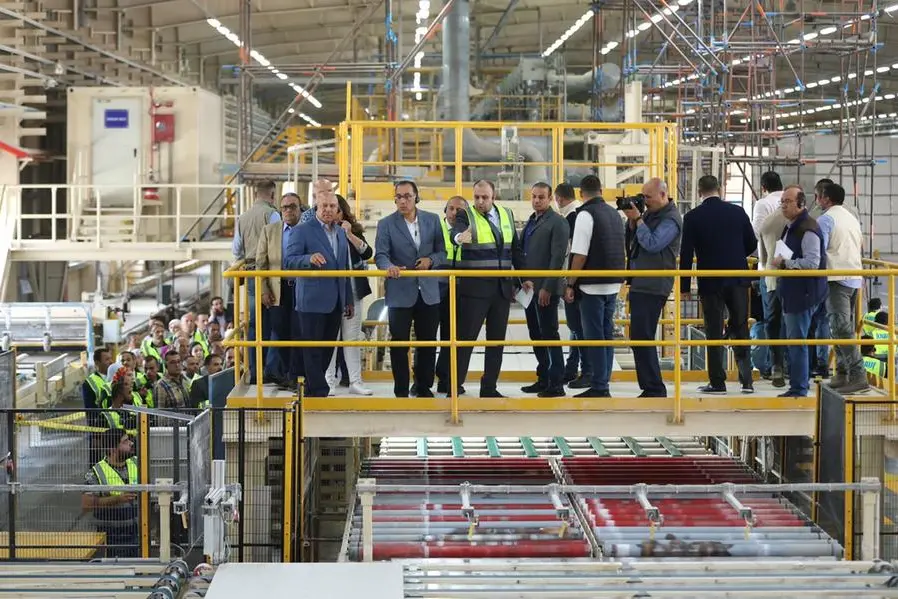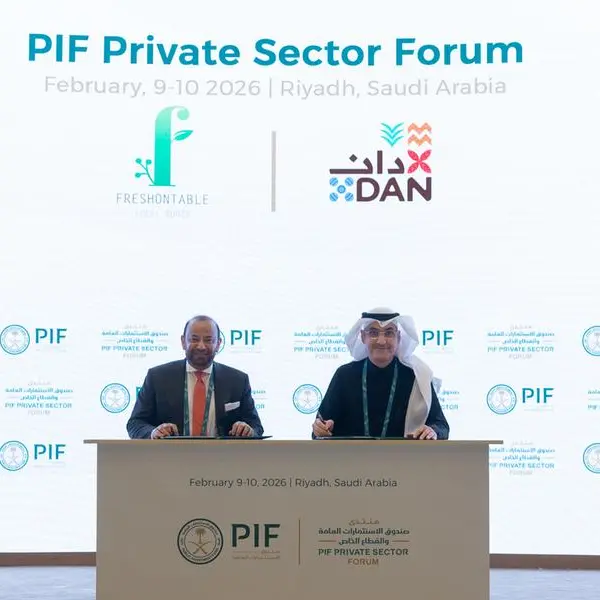PHOTO
- Knauf Egypt CEO: Plans for a Third “Knauf” Factory in Egypt with an Investment of 80 Million Euros
Prime Minister Dr. Mostafa Madbouly, along with his accompanying delegation, visited the Knauf Egypt’s gypsum board and gypsum products factory as part of his tour of Suez Governorate. This visit encompasses several projects across healthcare, education, housing, and other services.
At the beginning of the tour, the Prime Minister listened to an overview by Mohamed Abdelrasoul, CEO of Knauf Egypt, regarding the factory, its operations, and components. Abdelrasoul explained that Knauf Egypt is dedicated to providing high-quality products through the expertise of its local workforce, manufacturing a range of gypsum boards and metal parts to meet both Egyptian and international market demands. These products include moisture-resistant gypsum boards used for interior spaces exposed to humidity, such as coastal areas, where they serve in suspended ceilings and gypsum walls.
Abdelrasoul added that Knauf Egypt offers a diverse range of ceiling designs, providing various options for different systems and specialized metal parts for gypsum walls. These advanced products, known for their quality and efficiency, are the preferred choice for engineers and contractors in Egypt and abroad.
The investments in Knauf Egypt’s factory amount to approximately 80 million euros in direct investments, enhancing the company’s production capacity and enabling it to provide high-quality products to the local and regional markets. He further emphasized that the factory operates entirely with Egyptian labor.
He added that Knauf Germany has invested 600,000 euros to secure raw materials for production processes. In line with its commitment to skill development in construction, Knauf Egypt has established two training centers with an investment of 600,000 euros, which train approximately 4,000 individuals annually. These centers provide the latest training on modern construction techniques and systems, helping develop local skills and advance building technology in Egypt.
Abdelrasoul continued by highlighting Knauf Egypt’s commitment to social responsibility through its free training programs designed to support the construction sector and improve skills within the field. These centers introduce professionals to Knauf products and their uses, with a focus on gypsum boards and building solutions.
He noted that these training centers, located in Cairo and Alexandria, offer comprehensive training programs funded by the German Agency for International Cooperation (GIZ) to enhance the performance of industry workers. The centers are part of Knauf’s strategy to boost competitiveness and foster sustainable growth through skill development.
Abdelrasoul stated that Knauf remains confident in the Egyptian economy by establishing its third factory, with an estimated direct investment of around 80 million euros, using state-of-the-art technology. Once operational, the new factory will achieve an annual production capacity of 60 million square meters, while reducing water and energy consumption by 35%, contributing to lower harmful environmental emissions.
He emphasized Knauf’s commitment to exploring the full potential of the Egyptian market and the company’s plans to expand in Egypt, aiming to double production capacity and sales over the coming years to serve local and export markets.
Abdelrasoul added that Knauf Egypt delivers international standards through Egyptian expertise, currently serving 13 countries including Morocco, Libya, Madagascar, South Africa, Ethiopia, Nigeria, Greece, Cyprus, Sudan, Côte d'Ivoire, Réunion, Mauritius, and Jordan. Knauf’s products and systems stand out for their high quality and efficiency, leveraging advanced German technology.
He also highlighted Knauf’s contributions to several national projects in Egypt, including the Alamein Towers, the Iconic Tower, and the new Egyptian Parliament building, along with other projects in the New Administrative Capital.




















